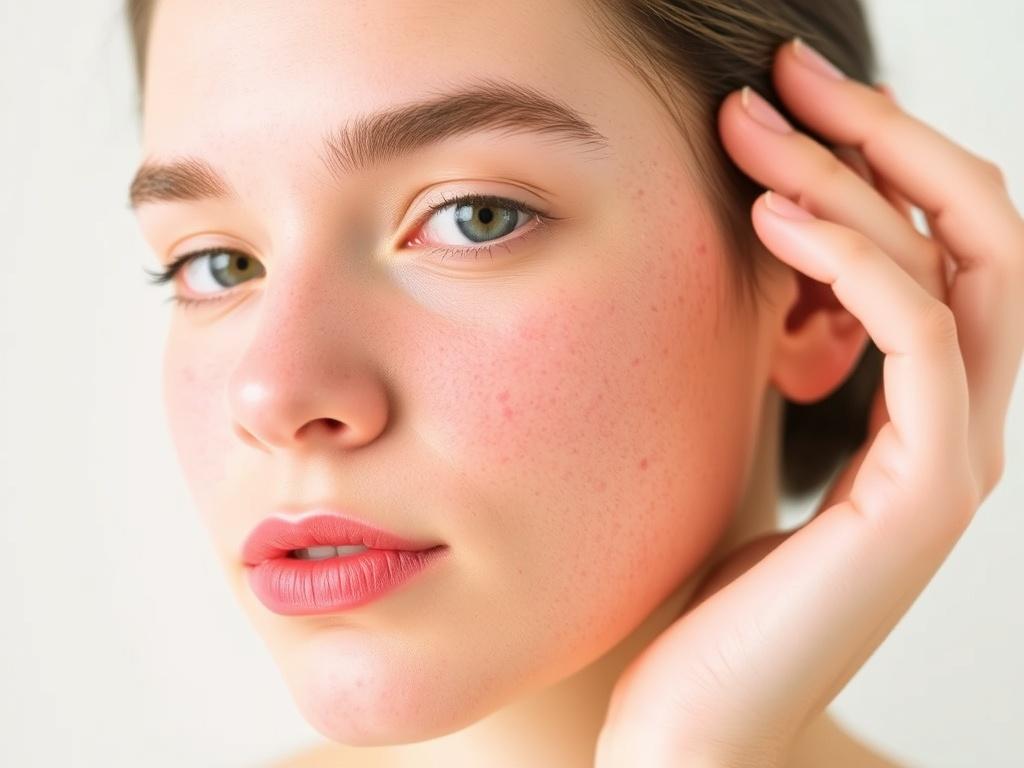Содержание статьи
- 1 Understanding Acne: More Than Just Skin Deep
- 2 How Diet Influences Acne: The Science Behind the Connection
- 3 Foods That Can Trigger Acne: A Closer Look
- 4 Foods That May Help Reduce Acne
- 5 Practical Tips to Adjust Your Diet for Better Skin
- 6 Common Myths About Diet and Acne Debunked
- 7 How to Track Your Diet and Acne Relationship
- 8 When to Consult a Dermatologist or Nutritionist
Acne has long been one of the most common skin problems, affecting millions of people worldwide, especially teenagers but also adults. Many of us have wondered: does what we eat really have any impact on those stubborn breakouts? The answer is complex but increasingly clear through scientific study and expert experience. The connection between diet and acne goes beyond old myths that greasy food causes pimples. Instead, modern research highlights how certain foods can influence inflammation, hormone levels, and bacteria on the skin, all of which affect acne severity. In this article, we will explore how what you put on your plate might be influencing your skin, breaking down the latest findings and giving you practical tips for a clearer complexion.
Understanding Acne: More Than Just Skin Deep
To appreciate the connection between diet and acne, let’s first understand what acne actually is. Acne is a chronic skin condition characterized by clogged pores, inflammation, and the presence of pimples, blackheads, or cysts. It’s caused by several factors working together: excess oil production, dead skin cells, bacteria called *Propionibacterium acnes*, and inflammation. Hormones, especially during puberty, can increase oil production, leading to breakouts. But diet plays a significant role too, mainly through its impact on hormones and the body’s inflammation levels.
Acne is not just a superficial problem; it can affect confidence and quality of life significantly. This is why so many people seek to understand if the foods they eat might be fueling their flare-ups. Recent studies have moved beyond skepticism and now provide scientific evidence about diet’s role in acne development.
How Diet Influences Acne: The Science Behind the Connection

To explain the connection between diet and acne, it helps to focus on a few key mechanisms.
The Role of Hormones and Insulin
Certain foods cause a rapid increase in blood sugar and insulin levels—known as having a high glycemic index (GI). Elevated blood sugar and insulin trigger the release of insulin-like growth factor 1 (IGF-1), a hormone that increases the production of sebum (oil) and stimulates skin cell growth, leading to clogged pores. This combination creates a perfect environment for acne development.
People who consume large quantities of high-GI foods often notice worsening acne symptoms. These foods include sugary snacks, white bread, and certain processed cereals.
Inflammation and Its Impact on Skin Health
Inflammation is a key part of acne formation. Diets rich in processed foods, trans fats, and refined sugars promote systemic inflammation—meaning inflammation throughout the body, including the skin. Chronic inflammation can worsen acne by irritating pores and exacerbating bacterial growth.
Conversely, anti-inflammatory foods such as fruits, vegetables, fatty fish, and nuts help calm the skin and reduce acne severity. These foods provide antioxidants and essential nutrients like omega-3 fatty acids which support skin healing.
The Microbiome: Friendly Bacteria and Acne
The microbiome refers to the billions of bacteria living on and within the human body. A healthy balance of these microbes can protect the skin from harmful bacteria that cause acne. Diet influences the microbiome because it feeds different microbial species. For example, diets high in fiber and probiotics support beneficial bacteria that may reduce skin inflammation and acne.
Dairy Products and Acne: What Does the Evidence Say?
One of the more controversial foods connected to acne is dairy. Milk and other dairy products contain hormones that might influence human hormone levels, potentially triggering acne. Several studies have found an association between milk consumption and increased acne severity, especially skim milk. However, the exact mechanism remains unclear, and some experts believe that the relationship might depend on individual sensitivities.
Foods That Can Trigger Acne: A Closer Look
To manage acne through diet, recognizing trigger foods is essential. Here’s a breakdown of common acne-triggering foods.
| Food Type | Reason for Acne Trigger | Examples |
|---|---|---|
| High-Glycemic Index Foods | Increase insulin and IGF-1, promoting excess oil production | White bread, pasta, sugary snacks, soda, processed cereals |
| Dairy Products | Might alter hormone levels, promote inflammation | Milk, cheese, yogurt (especially skim milk) |
| Fast Food and Processed Foods | High in unhealthy fats, sugar, and additives that increase inflammation | French fries, burgers, fried chicken, packaged snacks |
| Chocolate | May raise inflammation, but evidence is mixed | Milk chocolate, marshmallow-filled varieties |
Understanding this list can help you identify which foods might worsen your acne. Remember, everyone’s skin reacts differently, so personal experience is an important guide.
Foods That May Help Reduce Acne
On the flip side, some foods contain nutrients that support healthy skin and may improve acne by reducing inflammation and balancing hormones.
- Fruits and Vegetables: Rich in antioxidants and vitamins, they help fight inflammation and promote skin regeneration.
- Omega-3 Fatty Acids: Found in fatty fish like salmon and flaxseeds, omega-3s decrease inflammation in the body and skin.
- Probiotics: Yogurt with live cultures, kefir, and fermented foods support a healthy microbiome, potentially improving acne.
- Whole Grains: Lower glycemic index than processed grains, resulting in more stable blood sugar and hormone levels.
- Green Tea: Contains powerful antioxidants and may help reduce sebum production.
Including these foods in your diet encourages clearer skin and overall health. It’s not about deprivation but about nourishing your body with skin-friendly options.
Practical Tips to Adjust Your Diet for Better Skin
Making changes to your diet can feel daunting, but small, steady steps often yield the best results. Here are some practical tips:
1. Monitor Your Glycemic Load
Try to reduce high-glycemic foods like sugary cereals, white bread, and soft drinks. Opt for whole grains and complex carbohydrates instead. Foods with a lower glycemic index help reduce insulin spikes and prevent excessive oil production.
2. Limit Dairy Intake
If you suspect dairy affects your acne, consider cutting back or switching to alternatives like almond or oat milk. Also, monitor your skin’s response to dairy products over time.
3. Emphasize Anti-Inflammatory Foods
Load your meals with colorful fruits, leafy greens, nuts, seeds, and fatty fish. These ingredients help calm inflammation and support skin repair.
4. Stay Hydrated
Water doesn’t clear acne by itself, but proper hydration keeps skin cells healthy and promotes toxin elimination.
5. Include Probiotics and Fiber
Support your digestion and skin health by consuming probiotic foods alongside high-fiber fruits and vegetables.
Common Myths About Diet and Acne Debunked

There are many myths surrounding diet and acne that often confuse people. Here we clear up some of the most widespread misunderstandings.
- Myth: Greasy Foods Directly Cause Acne. While greasy foods can contribute to inflammation, they do not directly clog pores or cause acne. The oils in fried foods don’t transfer to your skin the way some believe.
- Myth: Chocolate Always Causes Acne. Some studies suggest chocolate may worsen acne, but the evidence isn’t conclusive. The sugar and milk in many chocolate products might be more to blame than chocolate itself.
- Myth: Eating Clean Means No More Acne. While diet plays a key role, acne is multifactorial and includes genetics, hormones, skincare habits, and stress management.
- Myth: Cutting Out All Fat Helps Acne. Healthy fats like omega-3s are crucial to reduce inflammation and promote skin health.
Understanding these myths helps you approach skin care with a balanced, informed perspective.
How to Track Your Diet and Acne Relationship
If you want to understand the connection between your diet and your skin better, consider keeping a simple diary. Tracking what you eat and how your skin responds in the following days or weeks can help identify triggers.
| Date | Foods Eaten | Acne Flare-Up Level (1-10) | Other Factors (Stress, Sleep) |
|---|---|---|---|
| March 1 | Pizza, soda, salad | 7 | Stressful day, 5 hours sleep |
| March 2 | Oatmeal, fruit, water | 3 | Relaxed day, 8 hours sleep |
This record will help you make informed food choices and understand the complex interplay of diet and other lifestyle factors.
When to Consult a Dermatologist or Nutritionist

Diet can be a powerful ally in the fight against acne, but it is rarely the sole solution. If acne persists despite dietary changes, or if you experience severe acne or cysts, consulting a healthcare professional is important. Dermatologists can offer treatments such as topical medications, antibiotics, or hormone therapy. Nutritionists can tailor dietary plans to your specific needs, balancing skin health with overall wellness.
Remember, every individual’s skin responds differently. Personalized care often brings the best results.
Conclusion
The connection between diet and acne is a fascinating and evolving area of research that confirms what many have suspected for years: what you eat does matter for your skin. While acne has complex causes, diet influences key factors like hormone levels, inflammation, and microbiome health that directly impact acne development. Choosing a diet rich in low-glycemic foods, anti-inflammatory ingredients, and balanced nutrients helps manage and reduce acne breakouts. At the same time, limiting high-glycemic foods, excessive dairy, and processed fast food can prevent flare-ups. Adjusting your diet is not a quick fix but a crucial part of a holistic approach to clearer skin and better health. By staying informed, experimenting with your food choices, and consulting professionals when needed, you can unlock the powerful connection between your diet and acne for a healthier, brighter complexion.


